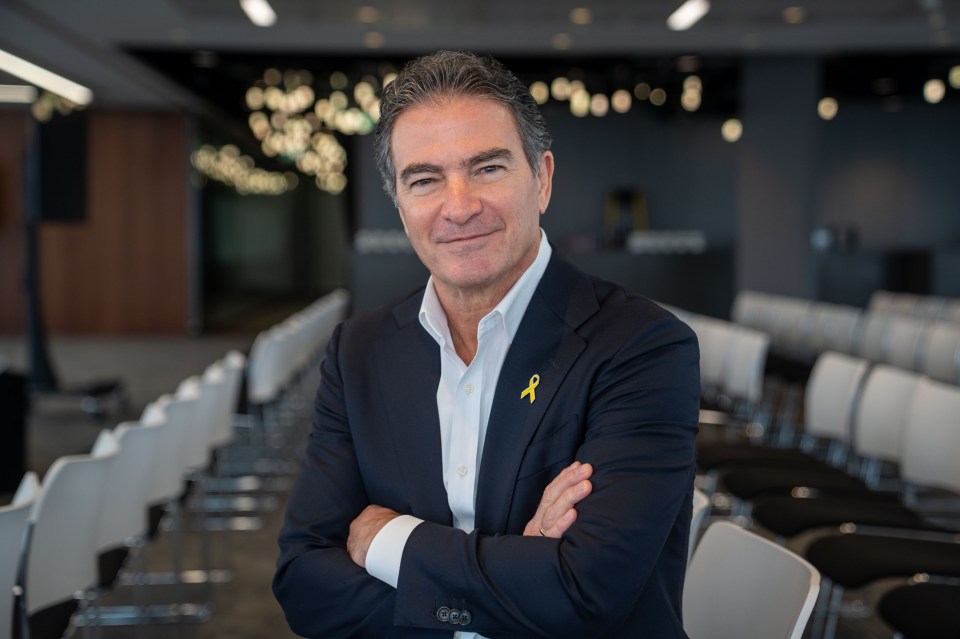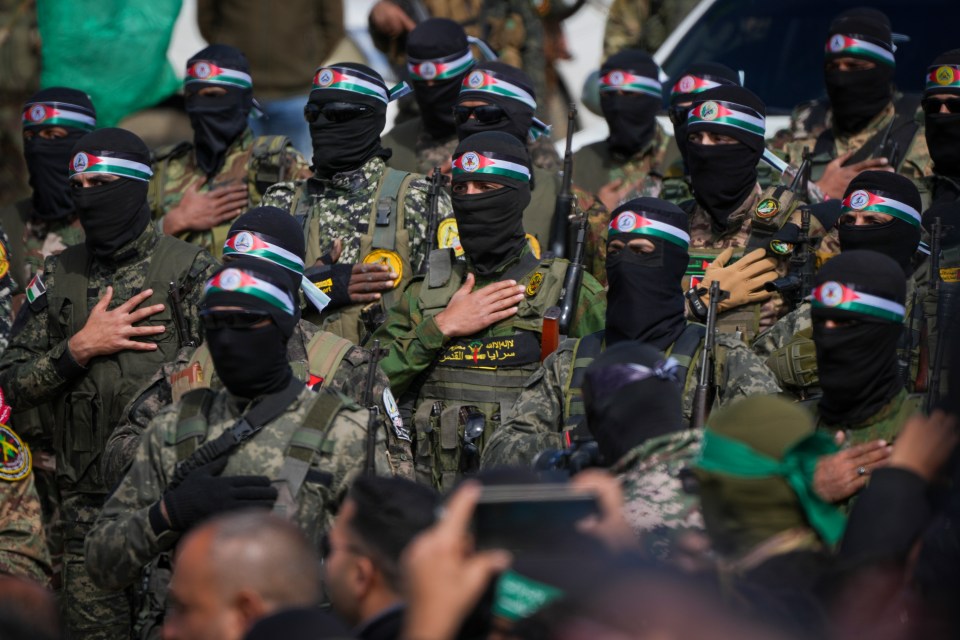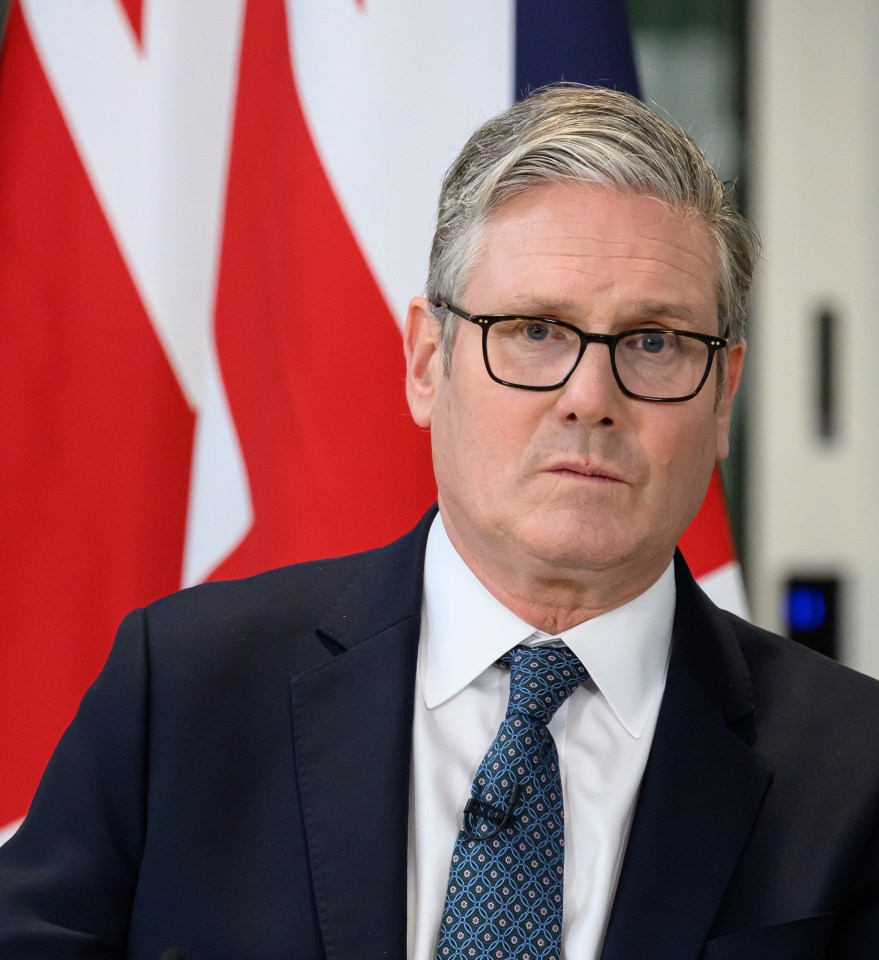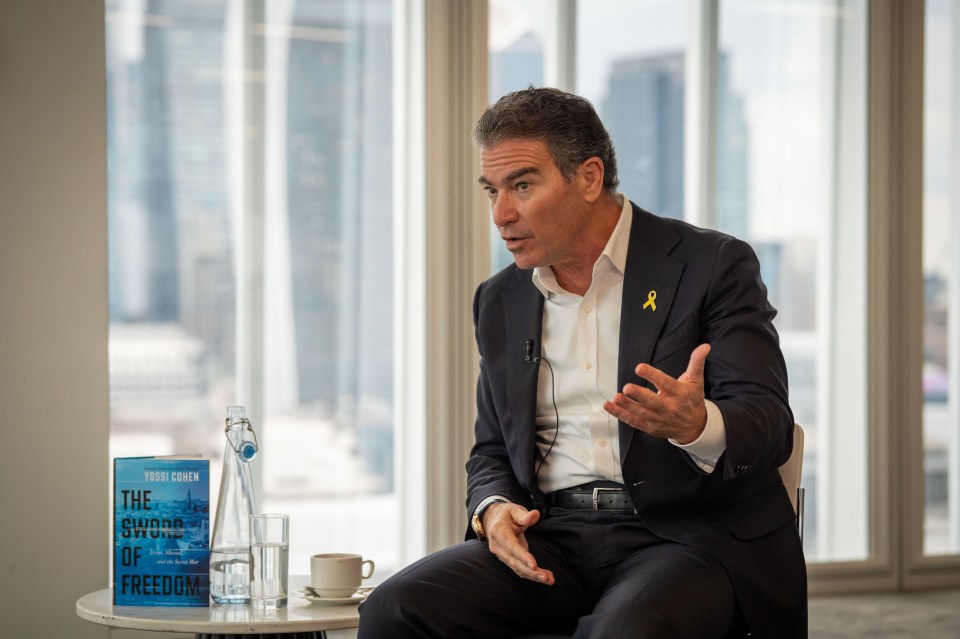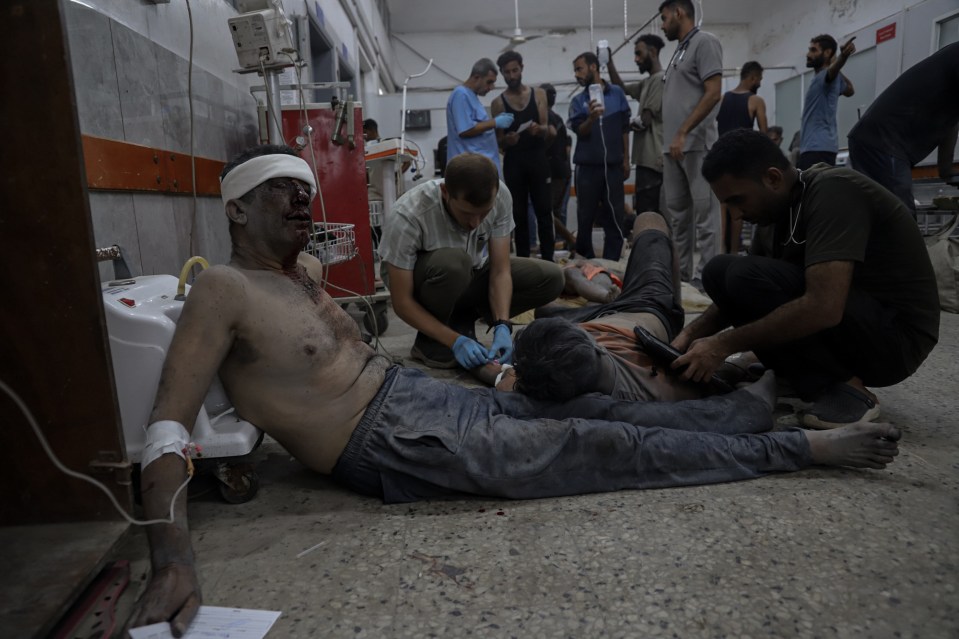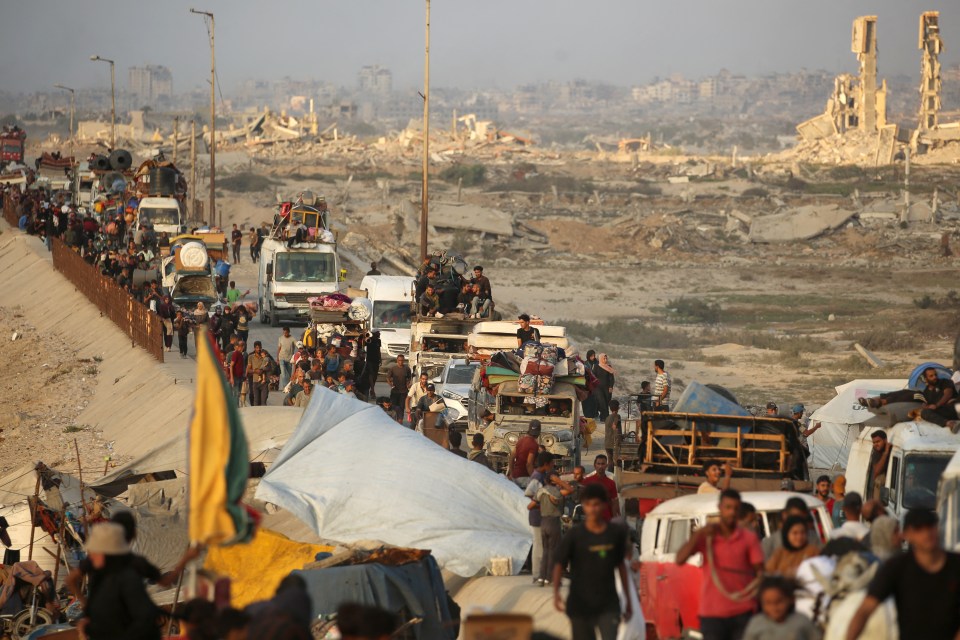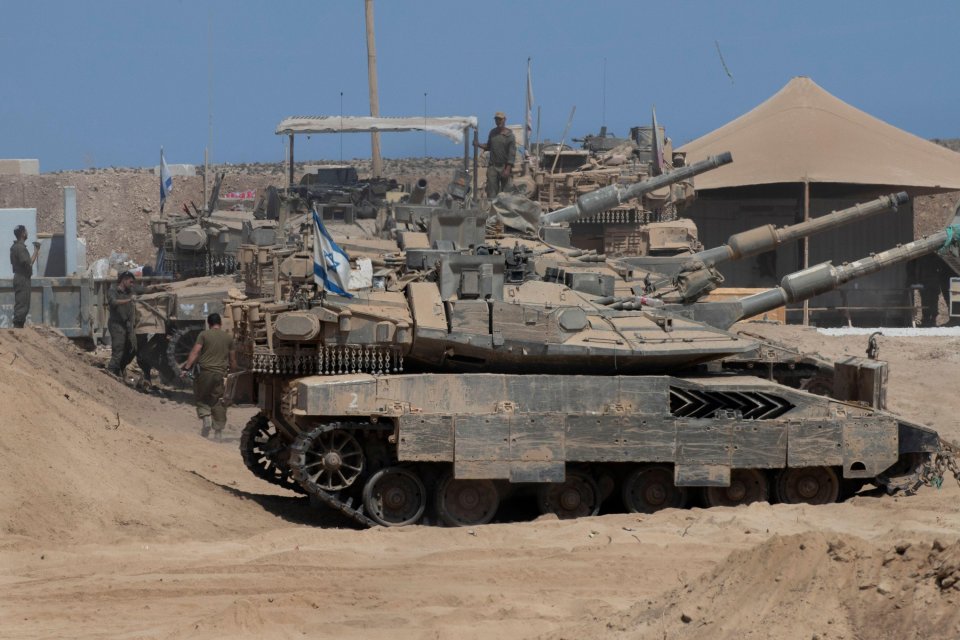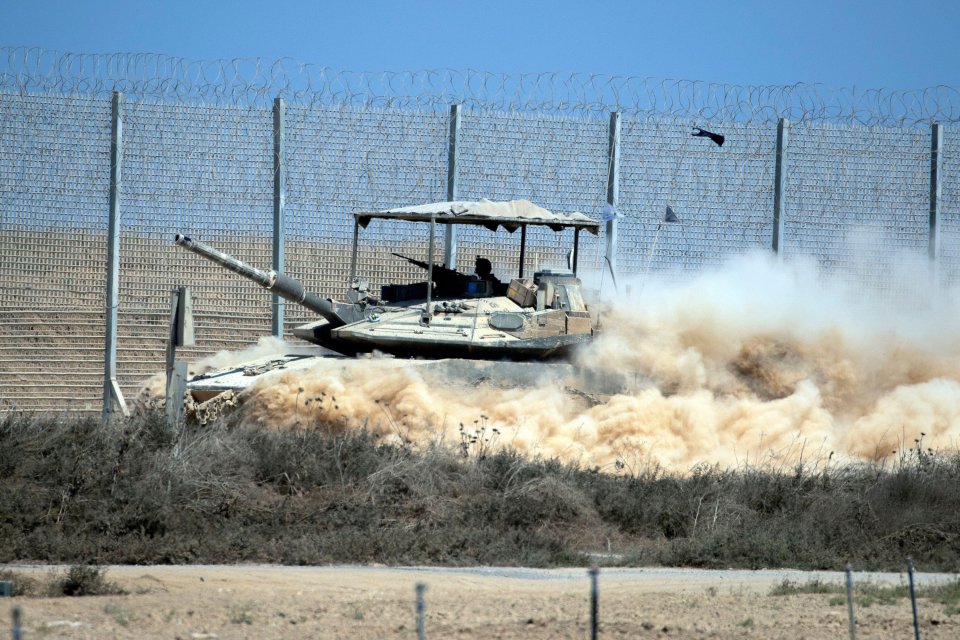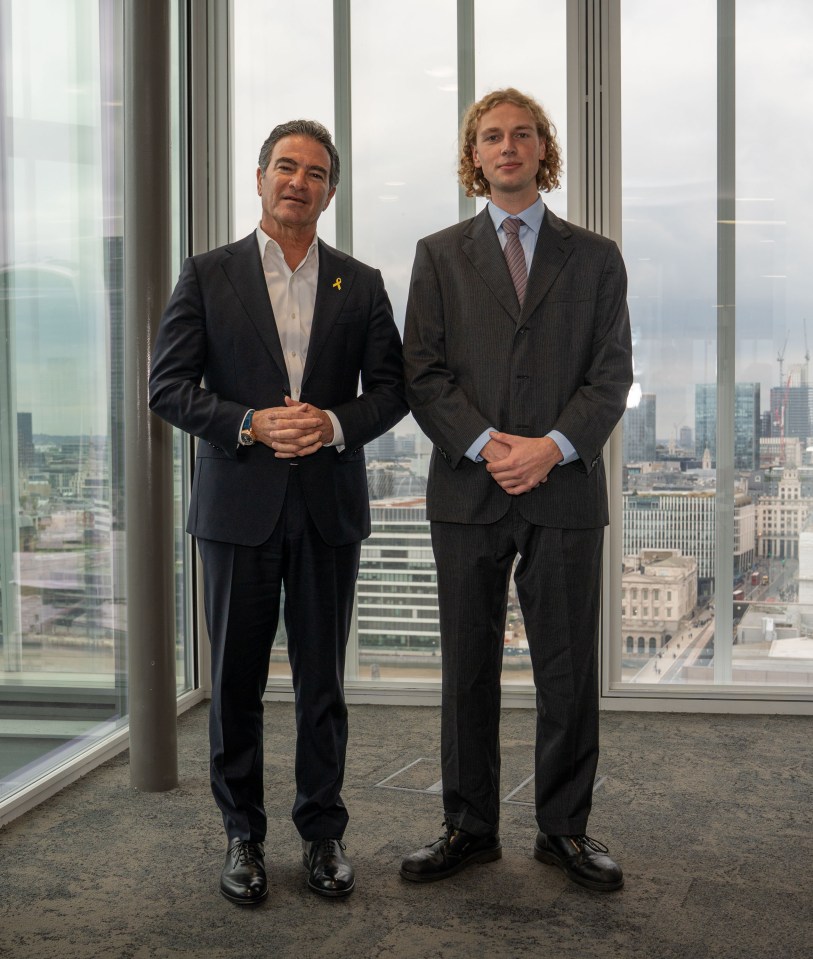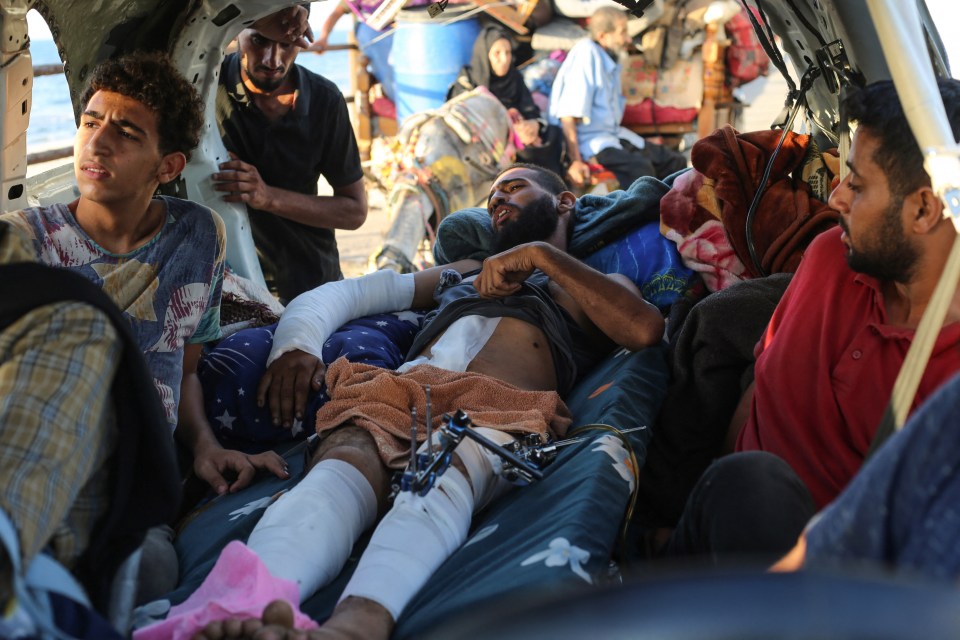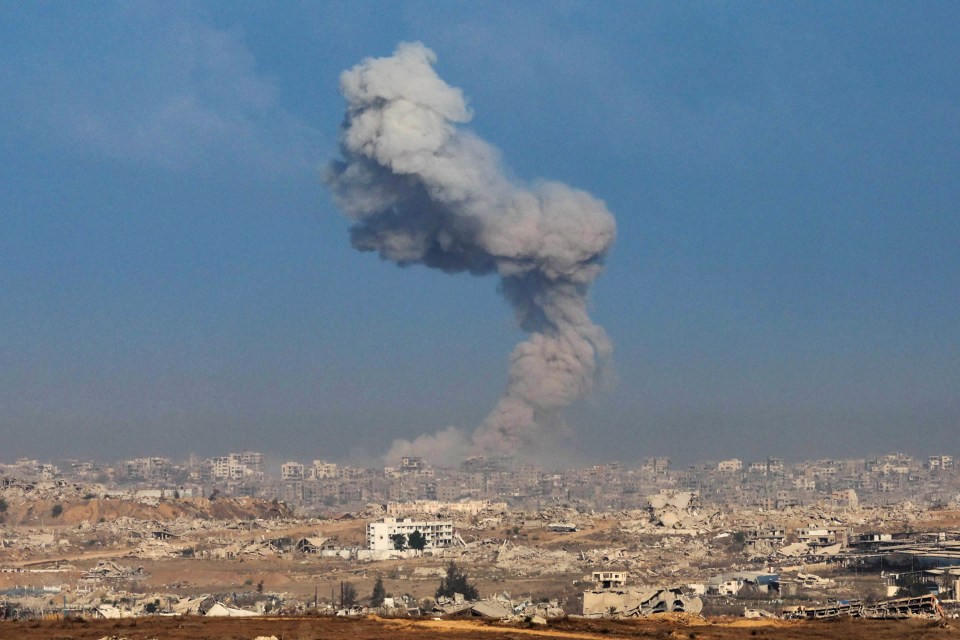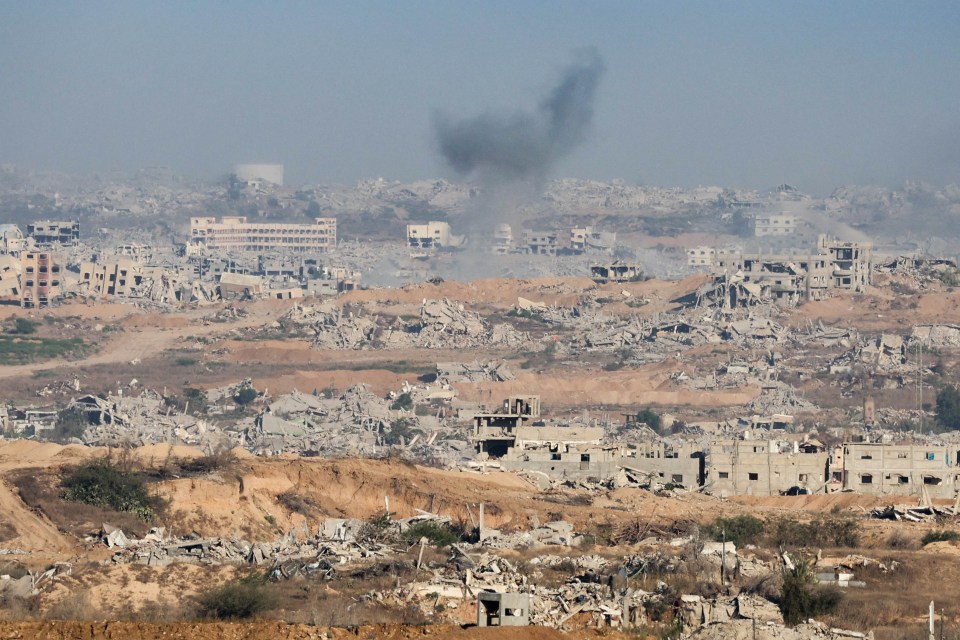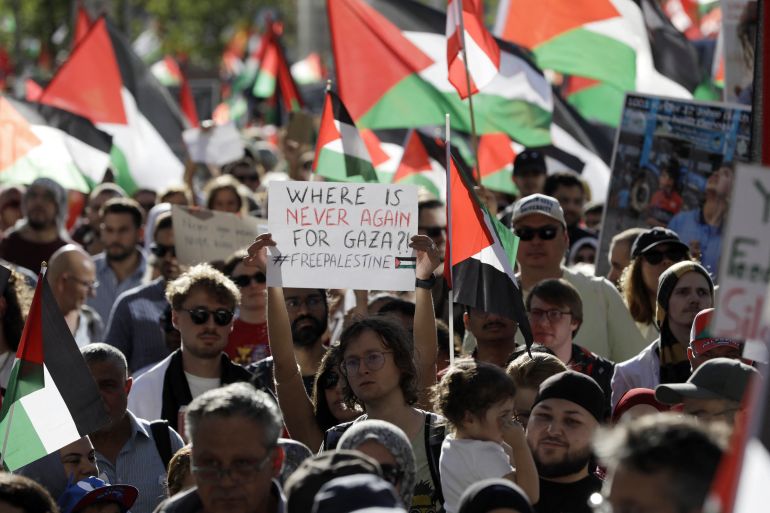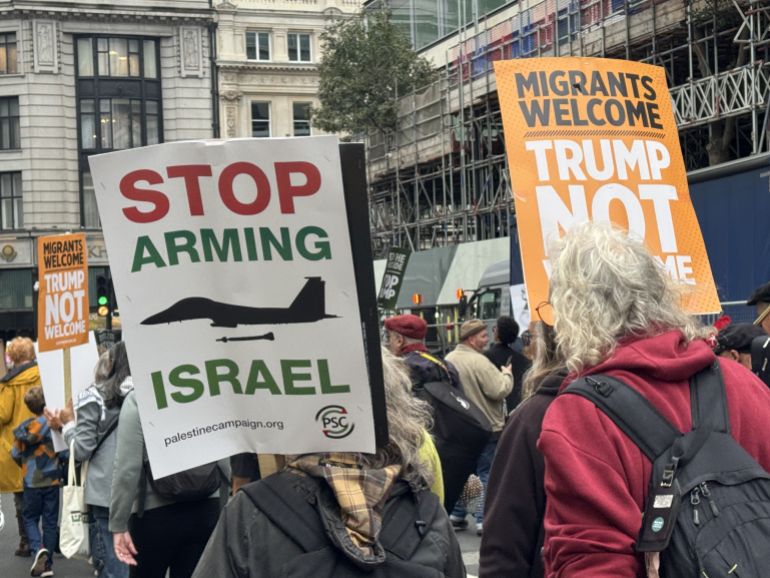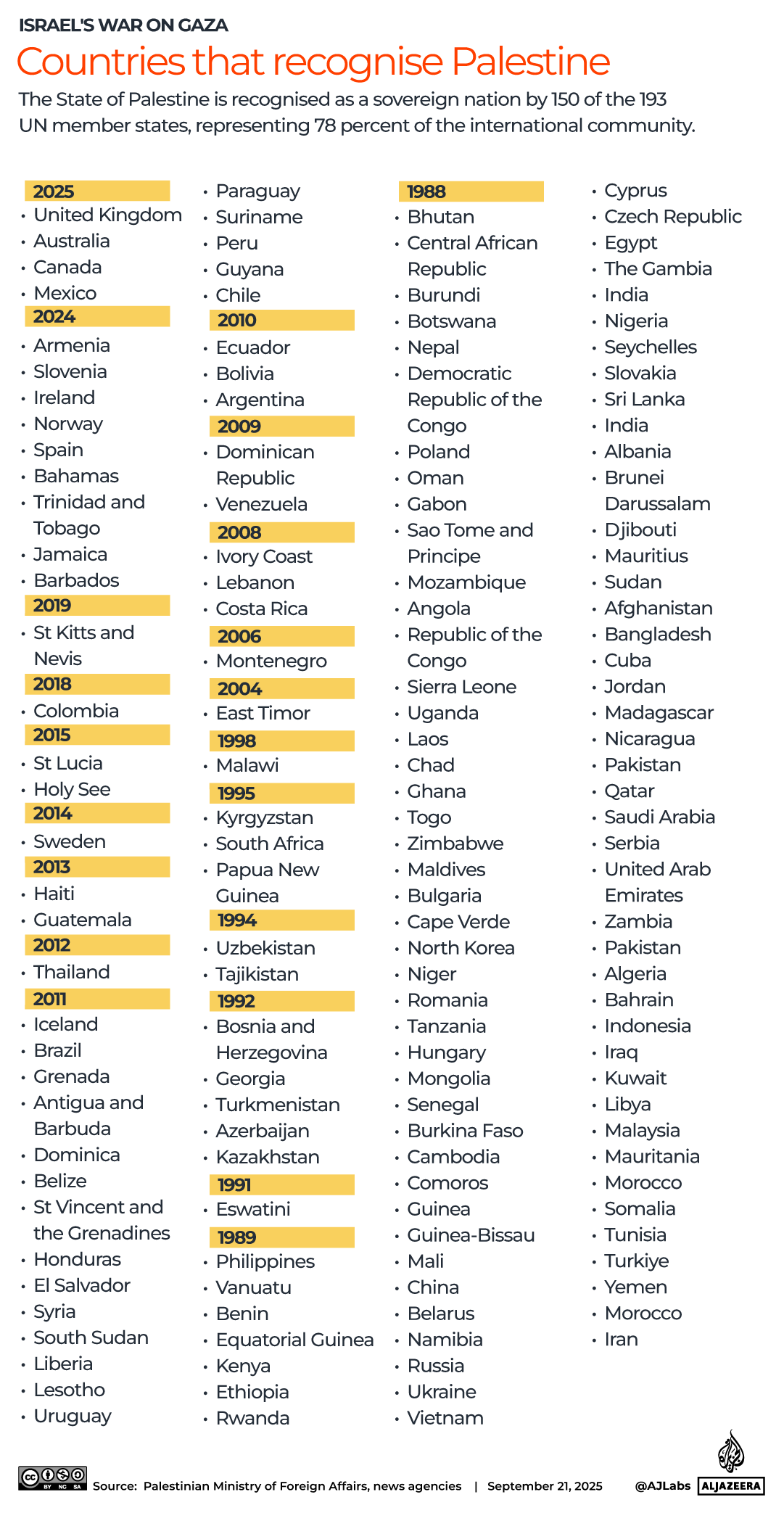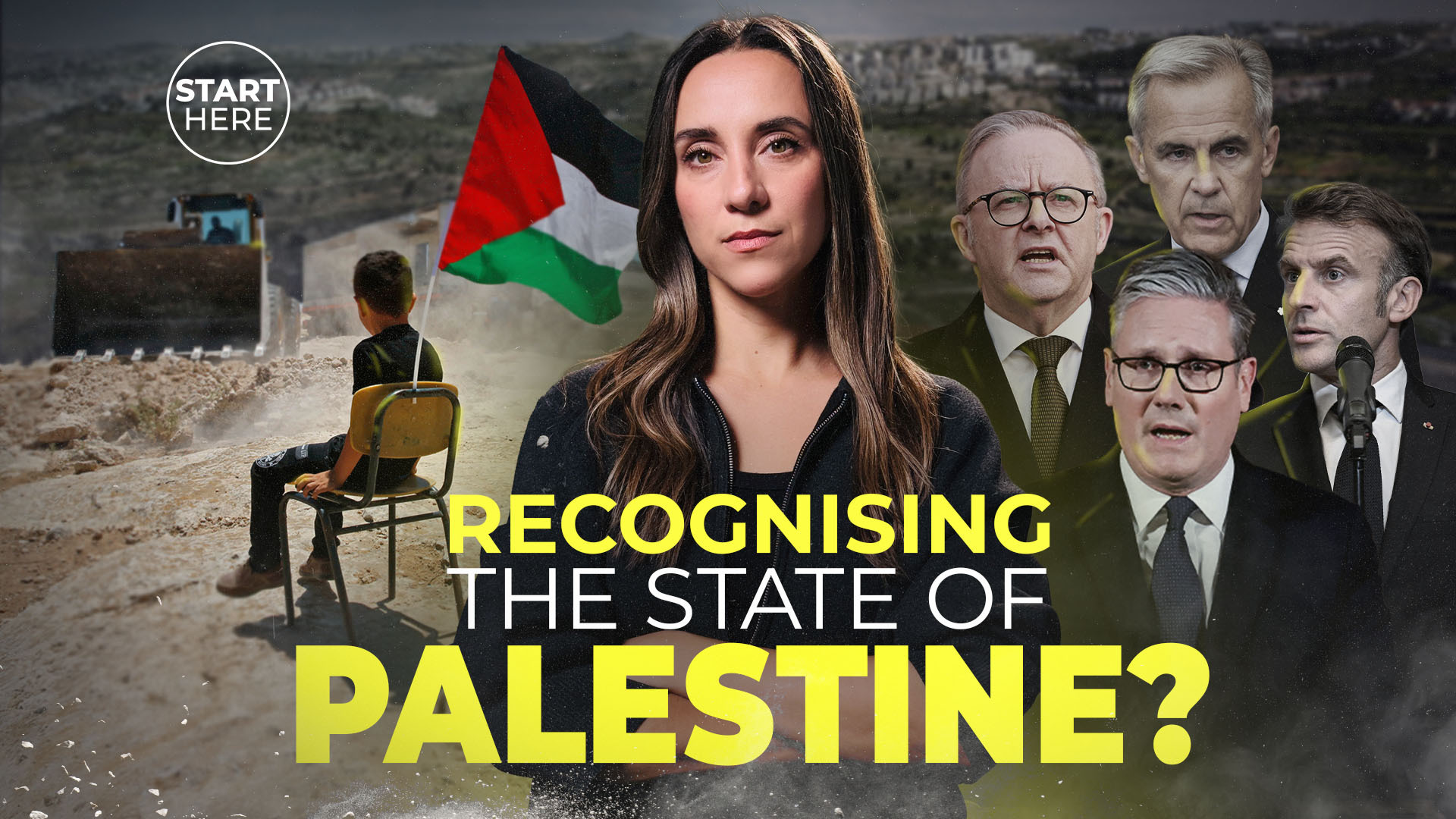Stand with us, ex-Mossad chief begs Britain as he reveals REAL reason Starmer ‘rewarded terror’ by recognising Palestine
BRITAIN must join the fight against Hamas and not reward terror by recognising a Palestinian state, the former chief of Mossad has said.
Veteran Israeli spy Yossi Cohen vowed to eradicate every last enemy fighter in Gaza – as he fumed that Israel is “doing the world’s job alone”.
Mr Cohen demanded to know why Britain and other countries were not helping Israel after joining previous fights against other terror groups.
Sitting down with The Sun, he said: “The big question is, will you join us?
“More than 70 countries, including Britain, fought together to defeat one terror organisation with ISIS, and you joined the war against the Taliban in Afghanistan.
“How many armies are fighting with us alongside Hamas? None. The state of Israel is doing the world’s job alone. You’re invited.”
read more on israel hamas war
With or without the support, Mr Cohen said he will hunt down every last Hamas fighter, vowing: “If there are 100 Hamas fighters left in Gaza City… I’ll find them for you.”
Mr Cohen, who reveals his life as a spy in his new book The Sword of Freedom, slammed Sir Keir Starmer for his decision last week to formally recognise a Palestinian state – insisting he has “no power to do that”.
Several other countries including France, Canada and Australia all recognised Palestine this month – pushing the number of UN members doing so over 150.
Successive UK governments have vowed to recognise a Palestinian state at the point of most impact as part of a peace process – and Starmer felt the time was now.
The PM said the decision was in aid of a two-state solution, which is the “opposite” of what Hamas wants – though the terror group still claimed it as a victory.
But Mr Cohen said the move by Starmer was cynical.
It was designed to “strengthen” support for the Labour government at home, Mr Cohen claimed, while serving no purpose on the world stage.
He speculated that Starmer felt forced into the decision to “keep people quiet” in the UK – rather than it being “from his heart”.
And he fumed it was a “reward” to Hamas for their heinous October 7 attack.
“If Hamas are the UK’s partners, that’s very sad,” Mr Cohen said.
Cohen dismissed the declaration as toothless because it is “legally impossible” for other countries to mandate a two-state solution.
Referring to the Oslo Accords of 1993, the only standing agreement Israel has with the Palestinian Authority, he insisted that decisions about statehood may only be made between Israel’s government and the PA.
Earlier this year, Trump also suggested recognising the Palestinian state would risk “rewarding Hamas”.
Cohen said there is a history of governments, including the British, saying one thing to their population and another thing to Israel behind closed doors – and that he “hopes” that remains the case.
He revealed that, in his former roles, he met with foreign diplomats who would be appreciative during private meetings – only to later release “the filthiest statements” about Israel.
‘We take care of Gazans’
Directly addressing the hundreds of thousands of Brits who regularly take to the streets as part of pro-Palestinian marches, Mr Cohen said: “Israel is conducting a just war. This is absolutely the right thing that we have to do.
“Intentionally, we do not kill civilians. Intentionally, we do not starve anyone. Intentionally, we’re taking care of the Gazan people.”
Mr Cohen even claimed he had received criticism in Israel for helping bring in financial support for Gazans from donors.
“Why is it that we do that? Because we do care about the Gazan people,” he insisted.
A United Nations commission determined this month that Israel is committing genocide in Gaza.
Israel’s conduct in the war has faced increased scrutiny over the past year as the humanitarian crisis in Gaza deepens.
Reflecting on why there is such a gulf in feeling between Israel’s public and Brits, Mr Cohen said his country is still reeling from the atrocities committed on October 7 – with hostages still being kept in Gaza.
He said: “Civilians were killed and butchered. Babies included, burned in their beds, raped. The atrocities that we’ve seen are on a different scale.
“This is the reaction of a normal country. We are a normal country.
“Demonstrators will demonstrate whether Israel conducts itself rightly or wrongly. This is part of their agenda.”
Civilians were killed and butchered. Babies included, burned in their beds, raped. The atrocities that we’ve seen are on a different scale
Yossi Cohen
Hundreds of civilians in Gaza are being killed every week in air strikes and shootings.
Israel has repeatedly blamed Hamas for the high civilian death toll – claiming the people of Gaza are being used as human shields.
The IDF has recently expanded its military operation in Gaza City where hundreds of thousands of civilian remain.
Confronted with this fact, Mr Cohen said: “The type of war that we conduct is hard.
“It is not something that you can even imagine when you have terrorists living together with kids and babies in kindergartens, UN facilities, hospitals, clinics, and any other thing.
“They just conquered everything, every single house in the region, to create a kind of a terror activity in within.
“So it’s hard to do, but I know for sure that the state of Israel is doing its best to make sure that the Gazan people will not be hurt.”
What does recognising Palestine mean?
BRITAIN’S recognition means that the UK government diplomatically acknowledges Palestine as a country.
The UK had already vowed to recognise a Palestinian state as part of a broader peace process with Israel, but it was long unclear when this might happen.
It does not mean that the UK no longer recognises Israel, with which Britain has had official diplomatic relations since the 1950s.
But Palestine now joins the list of nations formally recognised by Britain, meaning its chief envoy will now have the rank of ambassador.
The conflict between Israel and Palestine stretches back many decades, and it is still unclear what the borders of a Palestinian state would look like.
The West Bank, the Gaza Strip and East Jerusalem are frequently described as occupied Palestinian territories.
But Israel de facto controls much of this land, and has built substantial settlements in the West Bank and East Jerusalem.
Control of Palestinian territory is divided, with Hamas solely ruling over the Gaza Strip.
Almost 70,000 people have been killed in Gaza since October 7, according to Gaza’s Ministry of Health and the Israeli Ministry of Foreign Affairs.
The ex spy master served as Benjamin Netanyahu’s national security advisor – and has hinted at aspirations to become the next Prime Minister of Israel, or returning to the government in some capacity.
“If Netanyahu wants to use me or to use my capabilities… of course he can do that,” Mr Cohen said. “He knows my phone number.”
Hinting at Netanyahu’s handing of the war, he added: “I think the people of Israel need a change that is basically founded on the need of unification.
“It is getting a little bit too intense to my taste.”
‘Amazing’ Tony Blair
Cohen also passionately backed an emerging plan for former UK PM Tony Blair to temporarily govern Gaza after the war.
Blair has reportedly pitched a plan to Donald Trump which would see him lead a Gaza International Transitional Authority (GITA) overseeing the strip before handing over to the Palestinian Authority.
Cohen told us it was an “amazing move from Blair”, and insisted they would work well together.
He said: “This is the main problem – what do we do the day after? And who is going to take care of the close to 2.2 million people?
“We need someone to run the show in the Gaza Strip and stop it deteriorating into the hands of Hamas.
“Tony Blair‘s initiative and willingness to do that is highly appreciated. God bless him.”
Recognition of Palestinian state is ‘hollow gesture’
By Martina Bet, Political Correspondent
SIR Keir Starmer’s recognition of Palestine is being hailed by his allies as “historic”, but the question is what it actually achieves.
It is hard to see it as anything more than a hollow gesture.
It will not free a single hostage, feed a starving family in Gaza, or stop Israel’s bombardment.
The PM knows this, his own deputy, David Lammy, has admitted it. The move smacks of politics at home, throwing red meat to Labour’s left rather than solving a decades-old conflict.
It hands Hamas a propaganda victory and enrages Israel, while doing nothing to bring the two sides closer to peace.
Worse, it drives a wedge with Washington, where Donald Trump has made clear the US will never follow Britain’s lead.
Without America, a two-state solution is dead on arrival and for all the lofty talk, Starmer’s “historic” move looks like empty grandstanding.
